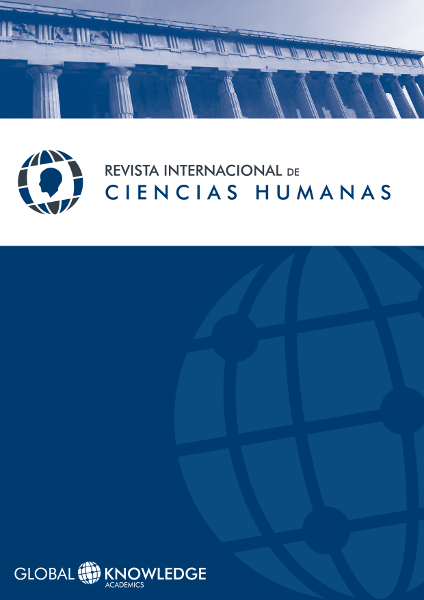Hybridism in Florbela Espanca Poetry
DOI:
https://doi.org/10.37467/gka-revhuman.v8.2320Keywords:
Symbolism, Hybridism, Florbela EspancaAbstract
This article presents studies about the hybridism present in the symbolist poetry of Florbela Espanca (1894-1930). We aim to present the results of an investigation into the hybrid traits that are present in the sonnets This Book ..., Me, Higher, Vanity and Tower of Mist, observing how these traits appear in each sonnet, their influences. and the contribution of different aesthetics in the construction of Florbela Espanca's poetry.
References
BALAKIAN, Ana. O simbolismo. Tradução: José Bonifácio A. Caldas. São Paulo: Perspectiva, 1985.
BAUDELAIRE, Charles. As flores do mal. Tradução, prefácio e notas de Jamil Almansur Hadad. São Paulo: Difusão Europeia do Livro, 1958.
CHADWICK, Charles. O Simbolismo. Lysia: Lisboa, 1971.
ESPANCA, Florbela. Sonetos. Ed. Completa/ Com um estudo crítico de José Régio. São Paulo: DIFEL, 1982.
FERREIRA, Ermelinda. Romantismos: mulheres apaixonadas na literatura portuguesa. In: Leituras: Autores Portugueses Revisitados. Recife: EDUFEPE, 2004.
GOLDSTEIN, Norma. Versos, sons e ritmos. 3 ed. São Paulo: Ática, 1986.
MURICY, Andrade. Panorama do movimento simbolista brasileiro. Instituto Nacional do Livro Brasil. MINISTÉRIO DA EDUCAÇÃO E SAÚDE. Rio de Janeiro: Departamento de Imprensa Nacional, 1951.
MOISÉS, Massaud. A literatura portuguesa. 14. Ed., São Paulo: Cultrix, 1977.
MOISÉS, Massaud. A literatura portuguesa através dos textos. 12. Ed., São Paulo: Cultrix, 1982.
SARAIVA, António José. Iniciação à literatura portuguesa. São Paulo: Companhia das Letras, 1999.
SARAIVA, A. J.; LOPES, O. História da literatura portuguesa. 17. Ed., Porto: Porto Editora, 1987.
Downloads
Published
How to Cite
Issue
Section
License
Those authors who publish in this journal accept the following terms:
- Authors will keep the moral right of the work and they will transfer the commercial rights.
- After 1 year from publication, the work shall thereafter be open access online on our website, but will retain copyright.
- In the event that the authors wish to assign an Creative Commons (CC) license, they may request it by writing to publishing@eagora.org









